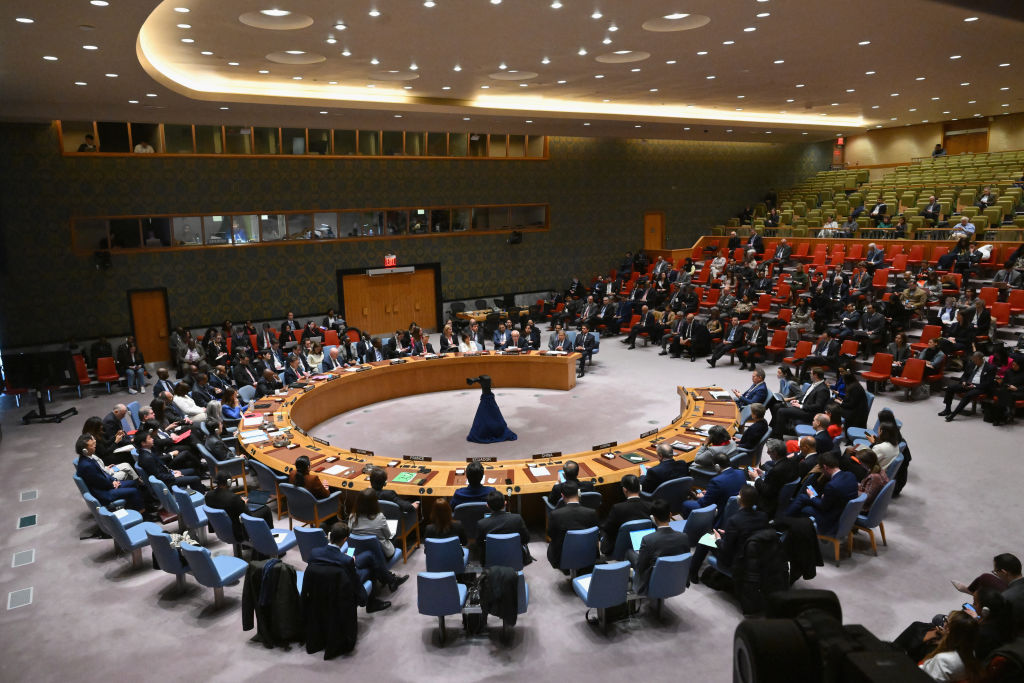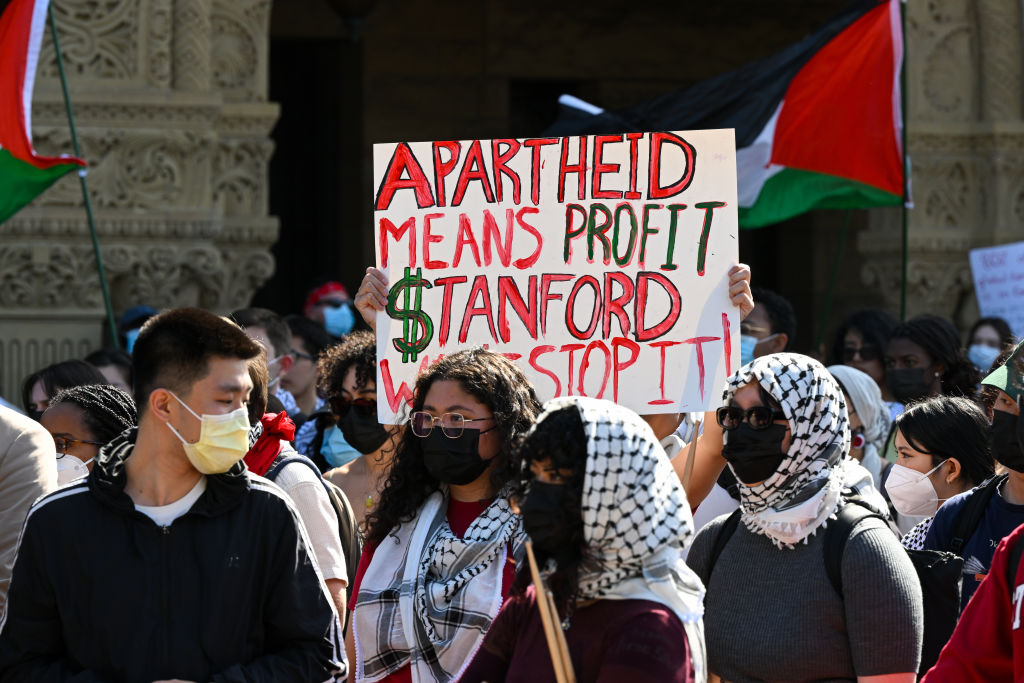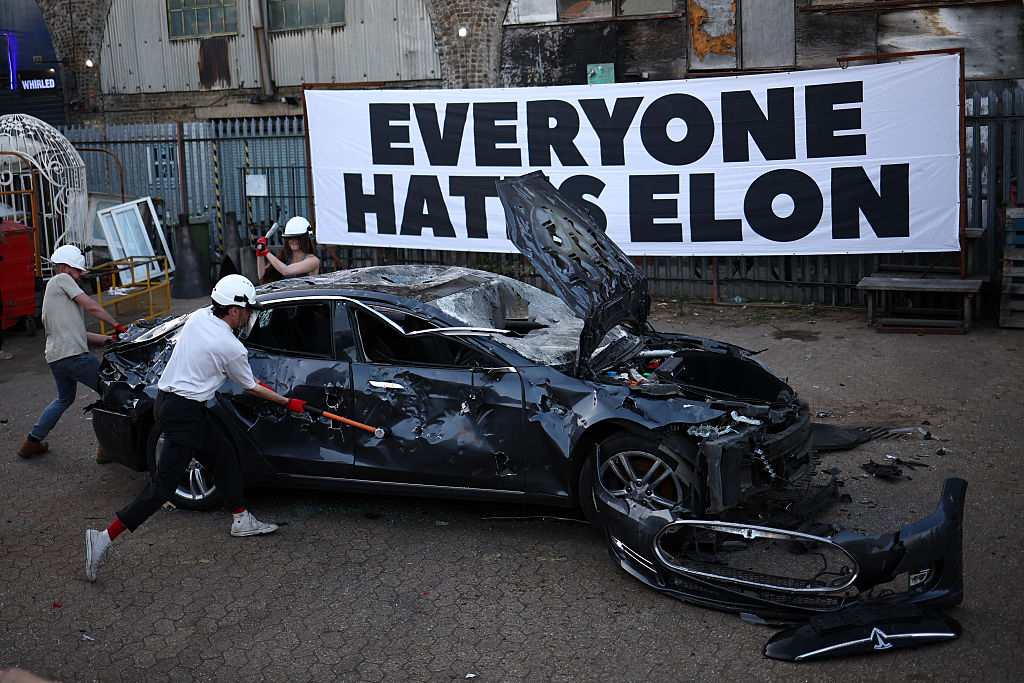The UN has passed a draft resolution calling for an immediate ceasefire in Gaza to last until the end of Ramadan in two weeks’ time, possibly leading to a permanent ceasefire. The resolution was backed by Russia, China and by the twenty-two-nation Arab Group. This is the first time that the security council managed to pass a ceasefire resolution, after all the others were vetoed.
The UN resolution is highly unlikely to result in the release of hostages by Hamas
The non-binding resolution calls for the ceasefire “to be respected by all parties” and demands “the immediate and unconditional release of all hostages.” It does not call for Hamas to surrender control over Gaza, which is Israel’s primary goal, in addition to the release of hostages.
The resolution has passed during ongoing negotiations between Israel and Hamas over a deal to release Israeli hostages in return for Palestinian prisoners and a ceasefire. The sides have failed to reach a deal, although reports from the last few days have been encouraging.
The UN resolution is highly unlikely to result in the release of hostages by Hamas. Throughout the war, UN officials have been consistently and vehemently anti-Israeli, while offering only weak condemnations of Hamas. Security council members Russia and China, who voted in favor of the resolution, have never condemned the horrific attacks on October 7 and denied Israel’s right to defend itself against Hamas.
This resolution, combined with the ongoing public criticism of Israel, could encourage Hamas to toughen their stance, and undermine the efforts to reach a deal, resulting in tragic consequences for the Israeli hostages and for Palestinian civilians.
Israeli officials called the resolution “problematic, because Hamas cannot be coerced into anything. Israel will be the only one under international pressure but the other side will not be.”
Although the US didn’t support the resolution because it didn’t condemn Hamas, Israel’s closest ally — for the first time — declined to veto the resolution and chose to abstain. This should truly concern Israeli PM Benjamin Netanyahu, whose relationship with President Biden has deteriorated greatly since the war started five months ago.
Biden has grown increasingly frustrated with Netanyahu’s refusal to plan for a change of governance in Gaza. Netanyahu has rejected American plans for replacing Hamas with the Palestinian Authority. He rejected similar plans made by his own defense minister in collaboration with Israel’s defense establishment, who favor Fatah over Hamas, and who contend that despite the drawbacks with Fatah, there is no other plausible option for Gaza.
Although Hamas bear the main responsibility for failures to reach a ceasefire deal, Netanyahu has also been dragging his feet in negotiating — angering both Biden and a large proportion of the Israeli public.
Biden suspects that Netanyahu wants the war to drag on without a long-term solution, in order to avoid a general election in which he is set to lose. Netanyahu has been clinging onto power through a long period of mass demonstrations against him, and continues to do so now.
Netanyahu is also not looking forward to the investigation that will be launched after the war, to find out how Hamas managed to carry out their large-scale invasion of Israel on October 7, leaving some 1,400 dead. Findings will surely point to serious failures by Netanyahu.
Biden’s administration’s main concern now is a possible large-scale Israeli operation in Gaza’s southern city of Rafah. While Biden is concerned that it will exacerbate the humanitarian crisis in Gaza — with Rafah providing refuge for roughly 1.5 million Palestinians — Israel sees it as an essential target because it’s the last Hamas stronghold.
Israeli officials have been in talks with the Biden administration about the planned operation. It’s unclear whether an Israeli delegation scheduled to fly to Washington today will go, after Netanyahu threatened to cancel the visit if the US didn’t veto the resolution.
Netanyahu’s insistence on an operation in Rafah deepened the rift between Israel and the US. On Sunday, Vice President Kamala Harris warned Israel that a military operation in Rafah would be a “huge mistake” and that there could be “consequences” for Israel. America’s decision not to veto the UN is therefore a warning sign to Netanyahu that could be a game changer.
This article was originally published on The Spectator’s UK website.


























Leave a Reply